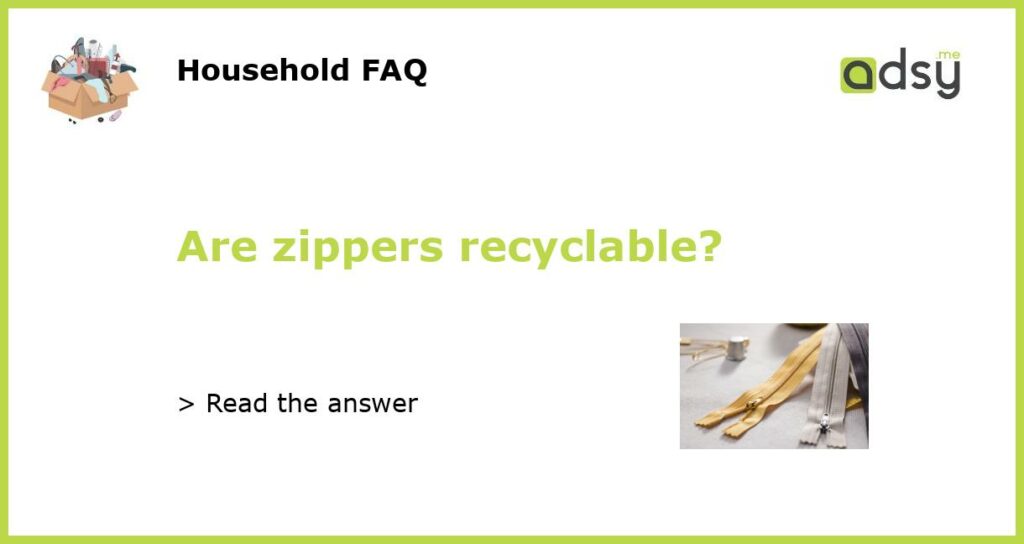Are zippers recyclable?
Many people are becoming more conscious about the impact of their daily choices on the environment. From reducing single-use plastics to recycling household waste, individuals are actively seeking ways to minimize their carbon footprint. One question that often comes up is whether or not zippers are recyclable.
The composition of zippers
To understand the recyclability of zippers, it is essential to examine their composition. Zippers consist of two main components: the tape and the slider. The tape is the fabric strip that holds the teeth together, while the slider is the mechanism used to open and close the zipper. The teeth themselves are typically made of metal, plastic, or nylon.
Recyclability of zipper components
When it comes to recycling zippers, the tape and slider components are typically recyclable, but the recycling process may vary depending on the materials used. Metal zippers, which are often found in denim or heavy-duty jackets, can be recycled by separating the metal from the fabric tape. This separation allows both components to be recycled separately.
On the other hand, plastic zippers require a different recycling approach. The plastic used in zippers is usually a type of synthetic material, such as nylon or polyester. These materials can be recycled, but the recycling facilities that accept them may be limited. It’s important to check with your local recycling center or waste management facilities to find out if they accept plastic zippers.
Sustainable alternatives
If you are unable to recycle your zippers or your local recycling center does not accept them, there are still sustainable alternatives to consider. One option is repurposing zippers in various craft projects. Zippers can be used to create jewelry, embellishments on clothing or accessories, or even as functional parts of bags and wallets.
Another sustainable option is to donate or sell items with zippers that are still in good condition. Thrift stores, online platforms, or local community groups may accept items with zippers and give them a second life. By extending the lifespan of these products, you are reducing the demand for new zippers and decreasing waste.
Rethinking consumption
While recycling zippers is important, it is equally crucial to take a step back and consider our overall consumption patterns. Fast fashion and the throwaway culture have contributed to an increase in waste, including zippers. By adopting a more mindful approach to purchasing, such as investing in high-quality clothing and accessories with durable zippers, we can reduce the need for constant replacements and ultimately minimize waste.
Overall, while the recyclability of zippers may vary depending on the materials used and the recycling facilities available in your area, there are still sustainable options to consider. From repurposing zippers in craft projects to donating or selling items with zippers, every effort counts in minimizing our environmental impact.






